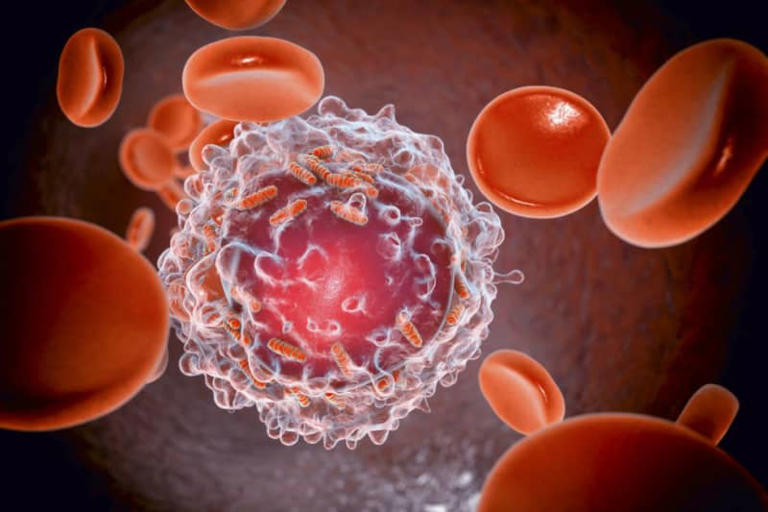Immunotherapy for Breast Cancer: A Promising Breakthrough in Targeted Treatment
Explore the groundbreaking research on immunotherapy for breast cancer, offering hope for more effective and targeted treatment strategies. Learn how scientists are targeting supportive cells to disrupt tumor growth and spread.

Immunotherapy for Breast Cancer: A Breakthrough in Targeted Treatment
Breast cancer remains a formidable health challenge, affecting thousands of individuals worldwide each year. Despite advancements in treatment, finding more effective and targeted therapies is crucial for improving patient outcomes. In recent years, researchers at the Institute of Cancer Research, London, have made significant strides in the realm of breast cancer treatment through the exploration of immunotherapy.
Understanding Immunotherapy
Immunotherapy represents a revolutionary approach to cancer treatment. Unlike traditional methods such as chemotherapy or radiation, which directly attack cancer cells, immunotherapy harnesses the power of the body’s immune system to fight cancer. This approach involves stimulating the immune system or using substances to enhance its ability to recognize and destroy cancer cells.
Challenges in Breast Cancer Treatment
While immunotherapy has shown promise in treating certain types of cancer, its efficacy in breast cancer has been limited. One of the challenges lies in identifying suitable targets for immunotherapy within the complex tumor microenvironment. Breast cancer tumors are heterogeneous, consisting of various cell types and structures that interact in intricate ways.
A New Approach: Targeting Supportive Cells
In their quest for more effective breast cancer treatments, researchers at the Institute of Cancer Research, London, have adopted a novel approach. Rather than targeting cancer cells directly, they focused on cells surrounding the tumor’s blood supply. These cells, which produce a protein called endosialin, play a critical role in supporting tumor growth and survival.
The Promise of Car-T Therapy
Central to this approach is a type of immunotherapy known as Car-T therapy. Car-T therapy involves genetically modifying T-cells, a type of white blood cell, to enhance their ability to recognize and attack cancer cells. In the case of breast cancer, researchers genetically modified T-cells to target the endosialin protein, which is abundant in the supportive cells surrounding the tumor.
Experimental Findings: Encouraging Results
The research team conducted experiments using mouse models of breast cancer to assess the efficacy of endosialin-targeted Car-T therapy. Remarkably, targeting the endosialin protein disrupted the tumor’s blood supply, effectively halting its growth and spread. These findings represent a significant breakthrough in the pursuit of more precise and targeted breast cancer treatments.
Expanding the Scope: Lung Cancer Implications
In addition to its application in breast cancer, the researchers also tested the endosialin-targeted Car-T therapy on lung cancer tumors in mice. Encouragingly, they observed similar positive outcomes, suggesting the potential for broader applicability across different cancer types.
The Role of Funding and Collaboration
Critical to the success of this research endeavor is the support from organizations like Breast Cancer Now. Funding from Breast Cancer Now has enabled researchers to explore innovative treatment approaches and move closer to translating their findings into clinical applications. Collaboration between researchers, clinicians, and advocacy groups is essential for driving progress in the fight against breast cancer.
Looking Ahead: Clinical Trials and Beyond
The promising results obtained from preclinical studies pave the way for further investigation through clinical trials. The ultimate goal is to refine and optimize endosialin-targeted Car-T therapy for use in human patients. These trials will not only evaluate the therapy’s effectiveness but also provide valuable insights into its safety profile and potential side effects.
Empowering Patients and Advocates
As research progresses, it is essential to keep patients and advocates informed and involved every step of the way. Transparency, communication, and patient-centered care are paramount in ensuring that new treatment options meet the needs and expectations of those affected by breast cancer.
Conclusion: A Beacon of Hope
In conclusion, immunotherapy offers a promising avenue for transforming the landscape of breast cancer treatment. By targeting supportive cells within the tumor microenvironment, researchers are opening new doors to more effective and targeted therapies. The journey towards personalized and precision medicine for breast cancer is ongoing, fueled by collaboration, innovation, and unwavering dedication to improving patient outcomes.
Join the Conversation
What are your thoughts on the potential of immunotherapy for breast cancer treatment? Together, we can continue to advance research and advocacy efforts in the fight against breast cancer.
